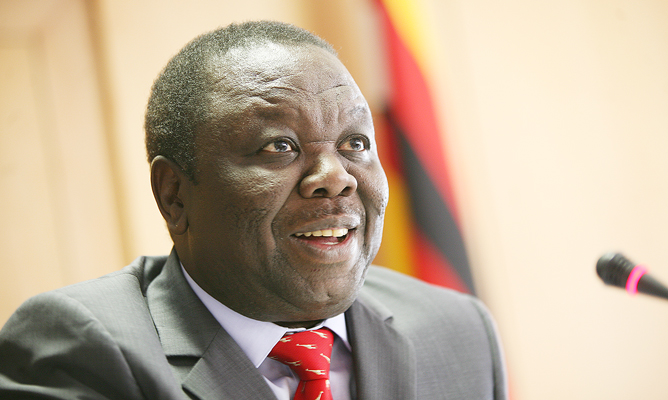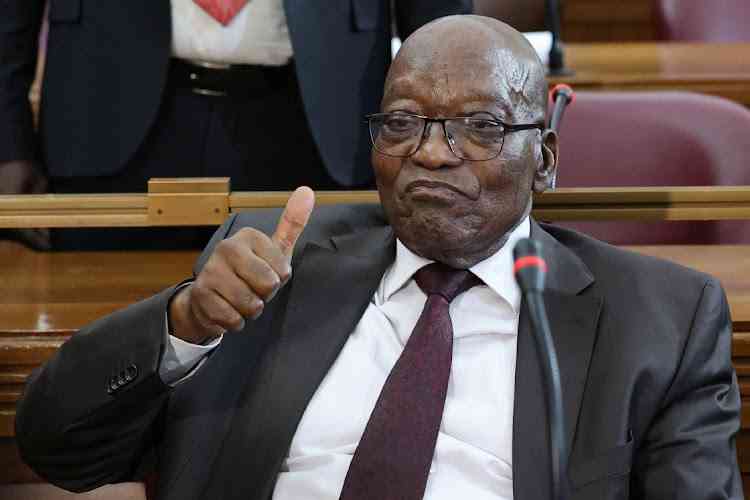
In the rainy and dour sunset, MDC-T president Morgan Tsvangirai and his convoy deftly negotiated the acute, calamitous curves near Kamativi mine, easing into the depths of the Zambezi valley, as they headed towards the forgotten people of Binga.
Opinion: Luke Tamborinyoka

It is always a grim journey to this desolate and neglected land, the valley itself a literal and sonorous testament of the plumbing depths to which the lives of the people here have sunk due to decades of abandonment.
The last time we were here, Tsvangirai was still the Prime Minister of Zimbabwe and we opened several health and education facilities and donated books and medicines.
The people of Binga still remember with nostalgia the respite that Tsvangirai’s short stint in government gave them — the hope that he delivered to their desolate and bleak lives.
As we drove into Binga last week, I remembered a similar journey in 2010 during the era of the inclusive government and the disturbing sight of a desolate, grass-thatched school that greeted us during our tour.
A grass-thatched school in this day and age was a disquieting sight. We had thought such schools were history, given how Zanu PF pontificates about having delivered optimum standards of education to the nation over the years.
The then Prime Minister ordered that we stop, as he wanted to have a chat with the headmaster.
- Chamisa under fire over US$120K donation
- Mavhunga puts DeMbare into Chibuku quarterfinals
- Pension funds bet on Cabora Bassa oilfields
- Councils defy govt fire tender directive
Keep Reading
Near the gate was an unkempt man, without any shoes, whom we all thought could assist and direct us to the headmaster’s house.
After exchanging greetings and pleasantries, we asked whether he could direct us to the headmaster’s house, to which the man replied, “I am the one”.
It was a school that we later upgraded, and to which we donated books and other educational material.
However, last week, Tsvangirai was on a different mission in the three provinces of Matabeleland.
He was beginning a nationwide tour to consult the people, soliciting their views on key national issues, among them the kind of society they want the new government to create after the 2018 general elections.
He also wants the people to input into the proposed alliance of opposition political parties in which the mooted plan is to pit President Robert Mugabe and Zanu PF against the rest of the country.
Before coming to Binga, Tsvangirai had been to Beitbridge, to Mtshabezi and to Gwanda all in Matabeleland South.
The script of marginalisation ran high in the three provinces, but it is always louder in this forgotten Zambezi valley.
The people here had only been remembered by government during Tsvangirai’s stint on the levers of the State.
Their Tonga language was being taught to their children by non-Tonga people, such as the Shona and the Ndebele.
Last week, they told the MDC-T leader they wanted a university and they also yearn for their own province, KaZambezi, stretching from Victoria Falls to Chirundu, that vast desolate valley encapsulating the Tonga culture and ethos.
Indeed, it was a sombre, pitiful snivel to a political leader by a forgotten people!
In his 10 days in the three Matabeleland provinces, Tsvangirai met an angry people that felt they were not part of the country. He met the Kalanga, the Ndebele, and the Tonga and spent a whole day with Nambya chiefs and headmen in Hwange, conversing with people of all shades and ethnic colours.
All he heard were grim stories of a forgotten people, who expected better treatment by the new government that will be ushered in by the watershed elections of 2018.
And Tsvangirai was warned of some of his lieutenants, who may want to fight the alliance, not for any objective reason, but for subjective motivations driven by selfish and personal interests to do with positions.
The people, during this tour, all expected better days ahead and gave the thumbs up to the opposition alliance, saying the kaleidoscopic political colours would provide a new impetus and give them reason to hope again.
There was overwhelming consensus that the new society, post-Mugabe in 2018, must be inclusive and must not leave anyone behind. They wanted closure on the atrocities of Gukurahundi, with their proposed solutions ranging from reparations to devolution as the ultimate panacea.
Mugabe may have conveniently dismissed the atrocities as a “moment of madness”, but evidence on the ground shows it was more and the effects have been monumental.
It was indeed an enlightening tour. The words that have continued to linger in Tsvangirai’s mind after his 10-day sojourn to the troubled region are the words of one Tonga chief, who pleaded with him in a strained and emotional voice: “When we vote you into government in 2018, Tsvangirai, please don’t follow in Mugabe’s footsteps.”
Indeed, it was a worthwhile warning by a traditional leader to the incoming leadership after the watershed poll of 2018.
The MDC-T’s national council, the party’s supreme decision-making body between congresses, consistent with a congress resolution on the need for a big tent, has already adopted principles that will guide the alliance-building process.
The party’s executive organs have tasked Tsvangirai with the responsibility of negotiating with other parties.
What he sought to do through this consultation process was not to seek endorsement, because alliance building has already been affirmed by both congress and the national council.
All he sought to do was to further enrich and enhance the negotiation process so that when he sits at the table with other principals, he would be guided by the feelings of the people on the ground.
Indeed, public participation has been the missing link in our politics. As a firm believer in the mass-line, it was no surprise that it would be Tsvangirai who would involve the people in this delicate process.
Alliance building cannot be an elitist discourse in boardrooms and it was only Tsvangirai, who could take this debate to the villages and the town-halls. That is his nature.
This coming Sunday, Tsvangirai continues with his listening tour in the provinces, starting with Midlands North province and then the rest of the country.
It only takes a man, who values people and after this tour, he can only be wiser and can be able to transact the people’s business well aware of their true feelings on the various issues.
That is the boss I have had the privilege to serve; a man who truly values people and who makes them the central currency in his politics.
I can only promise one thing to the people of Zimbabwe. Never mind the sceptics — and there are many of them around — Mugabe will contest against a united opposition in 2018.
Yes, the people are speaking and we are listening.
Future generations will not forgive us if we let slip this chance to consign mis-governance to the dustbins history.
Indeed, our children will curse and spit on our graves.
Luke Tamborinyoka is the presidential spokesperson and director of communications in the MDC-T. He writes in his official capacity. You can interact with him on Facebook and Twitter.











